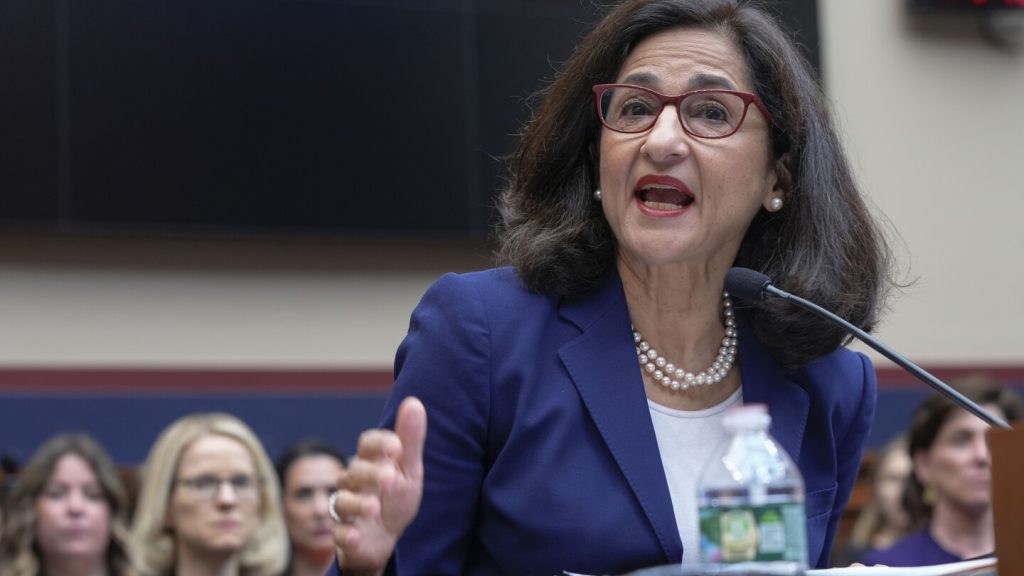Columbia University President Minouche Shafik, with a background in global financial institutions, is facing challenges in navigating ongoing student protests over the Israel-Hamas conflict. Her experience in handling international crises may not fully prepare her for the complexities of managing university conflicts. The protests at Columbia have escalated, with more than 100 students arrested after Shafik called in the New York City police. This action only fueled the demonstrators and inspired solidarity protests on campuses nationwide. Republican lawmakers have expressed concerns about antisemitism on college campuses and have criticized university leaders for their handling of free speech protections.
While Shafik initially appeared to handle the congressional grilling well, the Columbia chapter of the American Association of University Professors reacted strongly to her testimony, accusing her of giving in to lawmakers who made negative remarks about faculty and students. Lawmakers are now calling for her resignation, citing a lack of a safe learning environment on campus. Shafik’s childhood experiences in Egypt and the Southeast, where she witnessed discrimination, have shaped her approach to engaging with diverse backgrounds. However, her position at Columbia requires not just cultural sensitivity but also political finesse in balancing free speech, academic freedom, and effective governance.
Shafik, who was the first woman to become president of Columbia, has a background in finance rather than academia. Like other university leaders of nonacademic backgrounds, she must navigate the complexities of managing diverse stakeholders in the higher education ecosystem. Her experience in international institutions like the World Bank and the IMF has equipped her with skills in solving complex problems, which she believes can be applied to the challenges at Columbia. Despite the calls for her resignation, Shafik remains committed to the institution’s core educational mission and the impact it can have on communities and the world.
Observers note that university governance has become increasingly complex in the modern era, requiring leaders like Shafik to balance the demands of various stakeholders, including students, faculty, and politicians. The role of university president involves maintaining shared governance between the faculty, the board, and the administration, which can lead to conflicting expectations of success. Shafik’s international experiences and commitment to education as a tool for positive change inform her leadership style at Columbia. As she faces mounting pressure to resign amidst ongoing protests and criticism, Shafik’s ability to effectively manage the university’s challenges remains uncertain.


